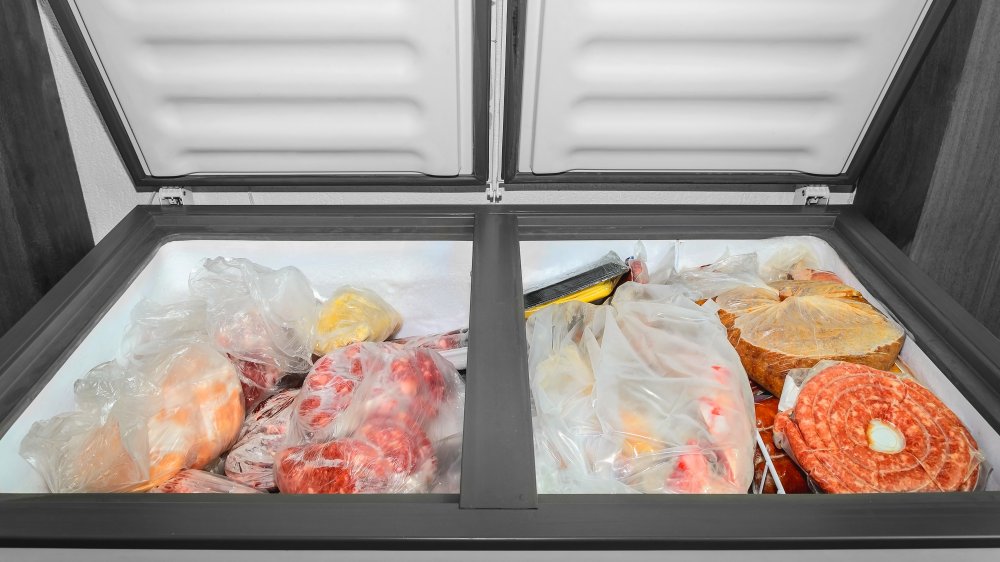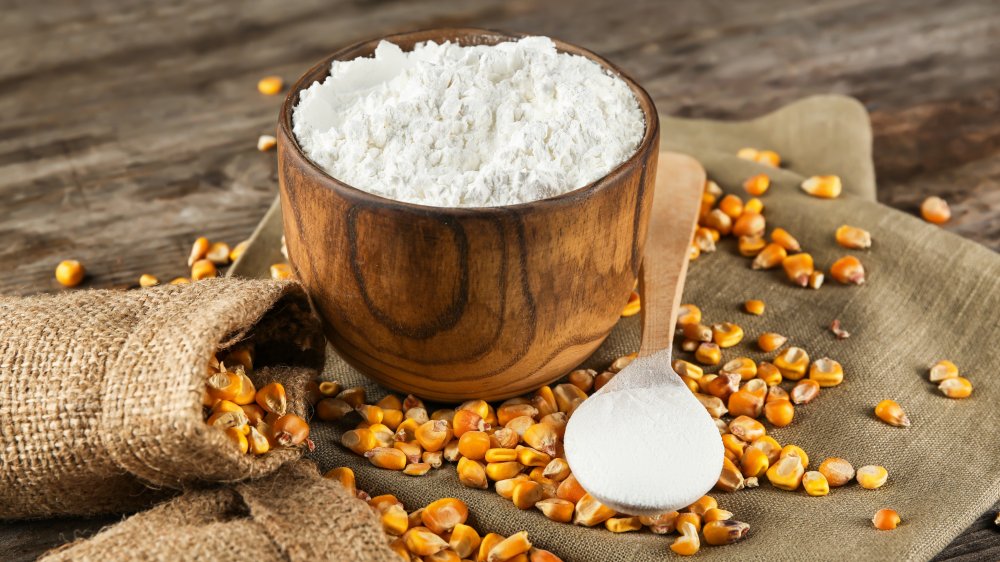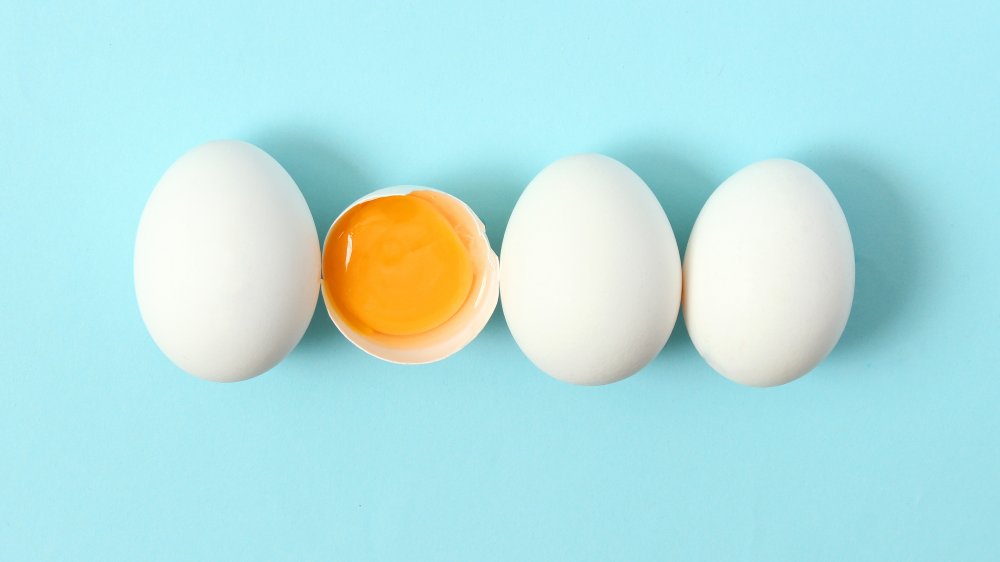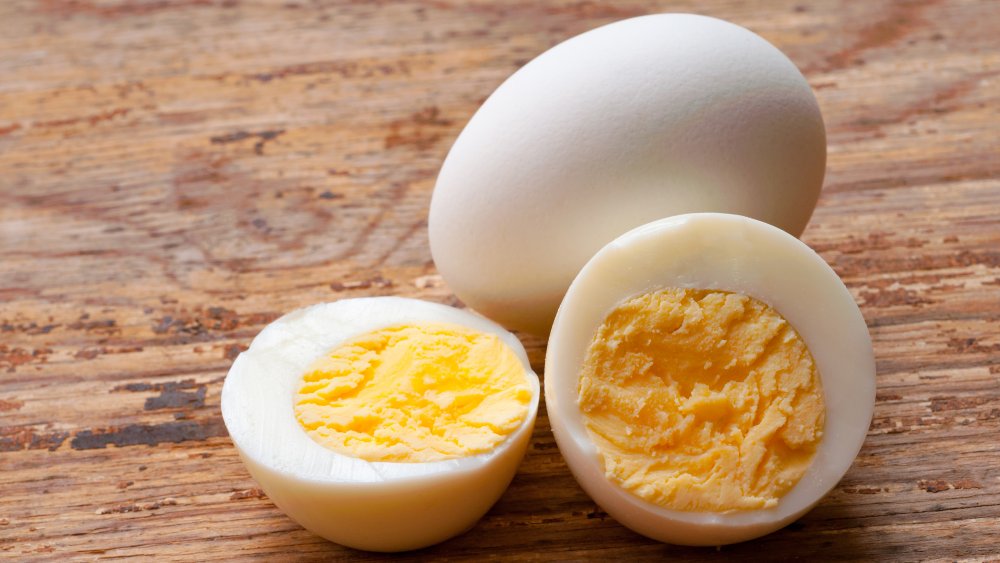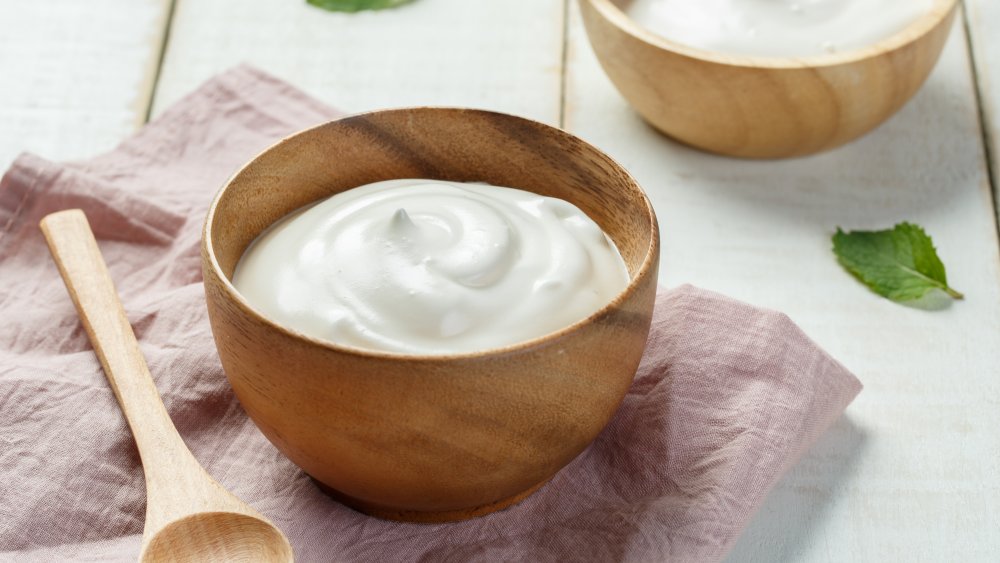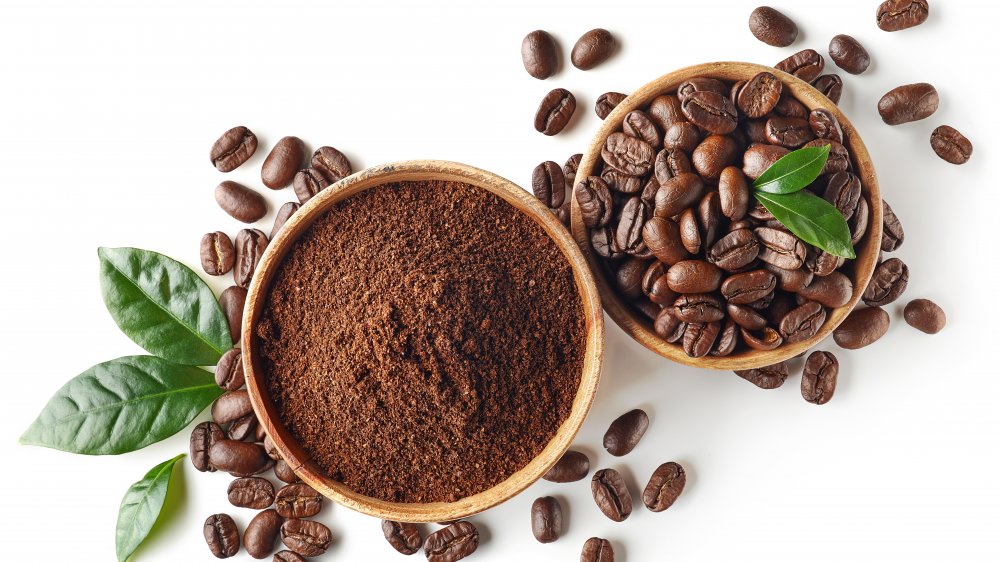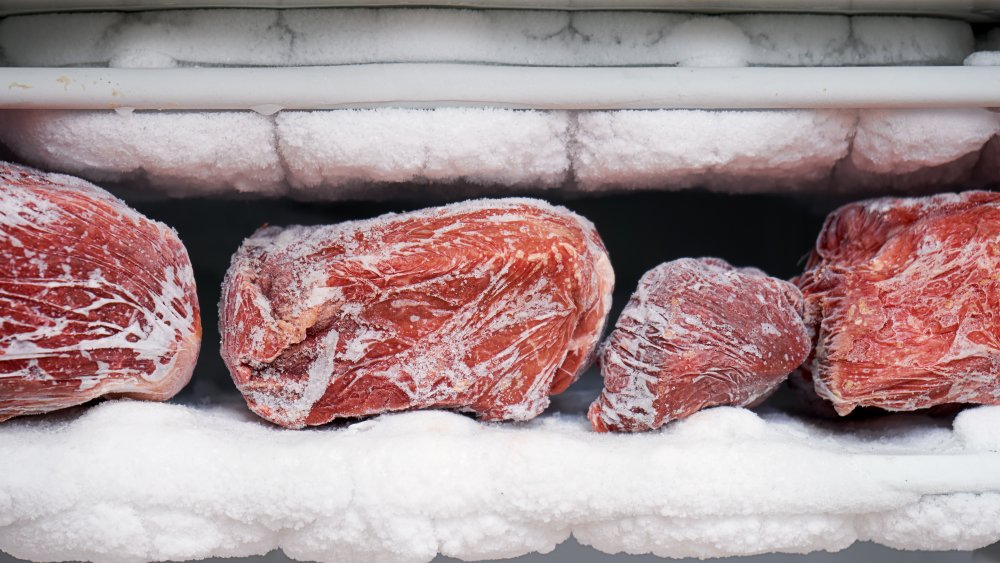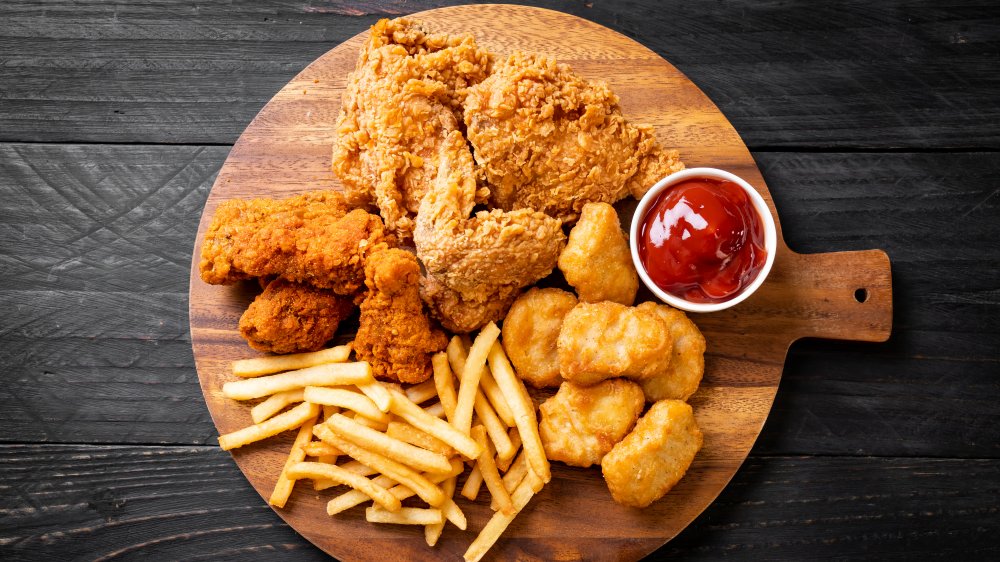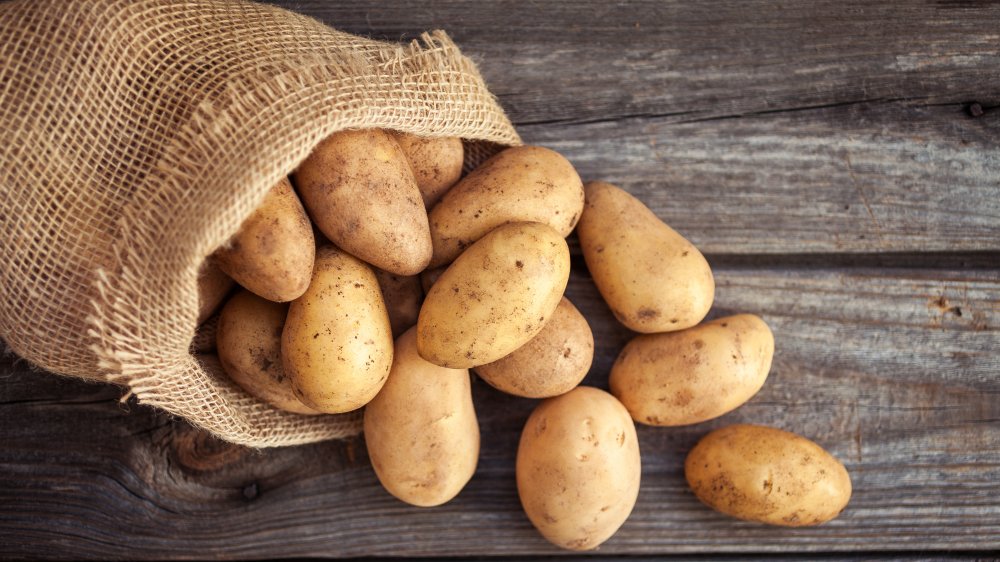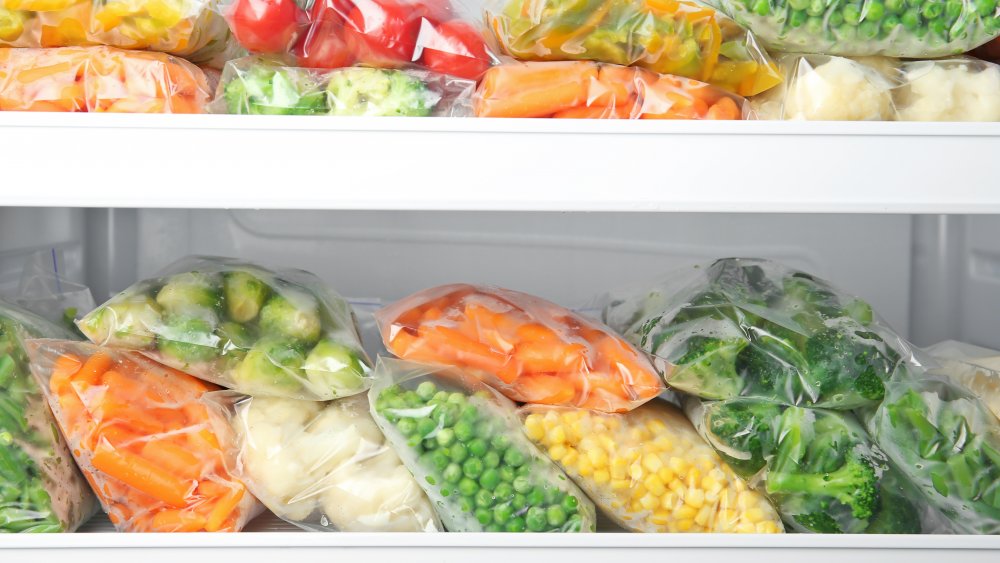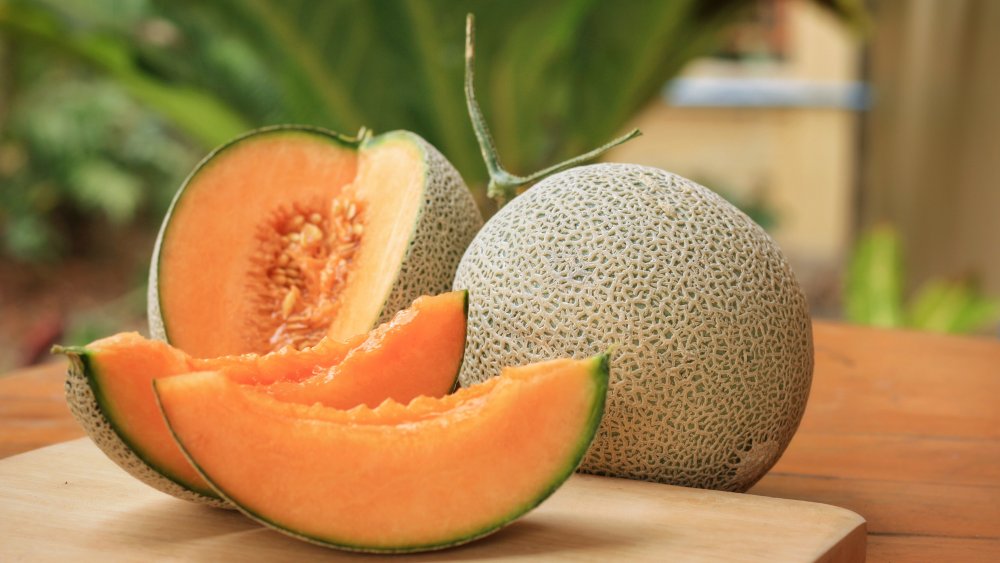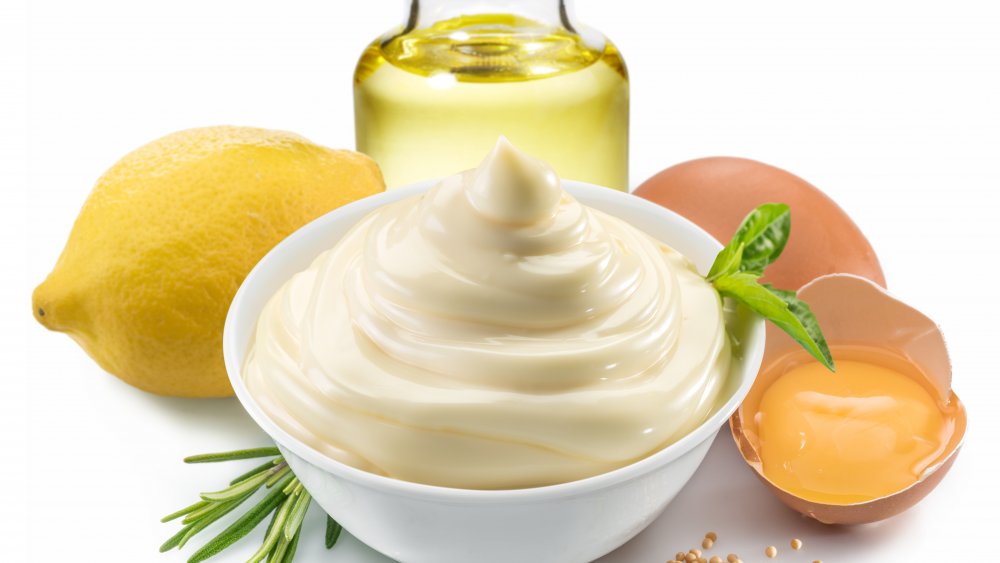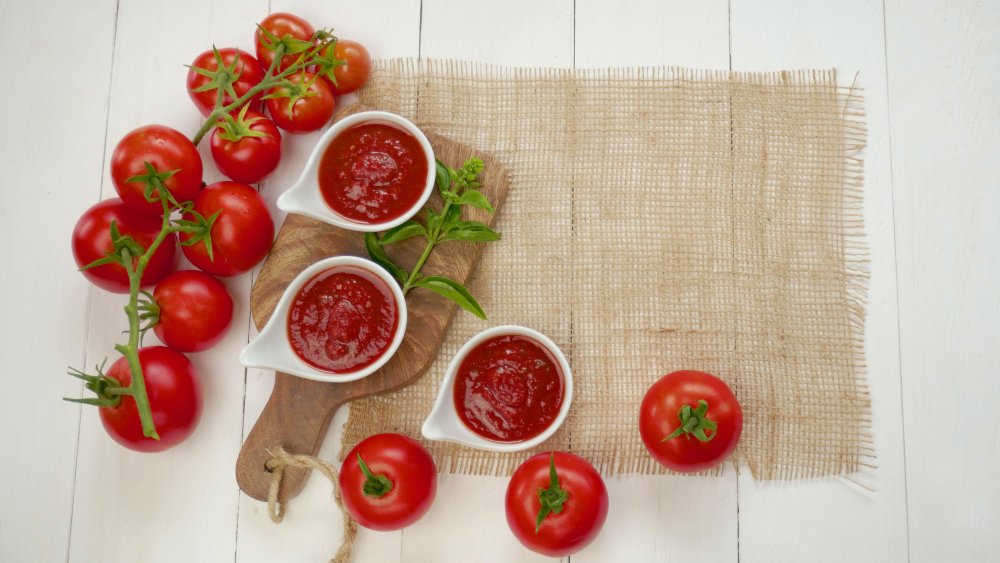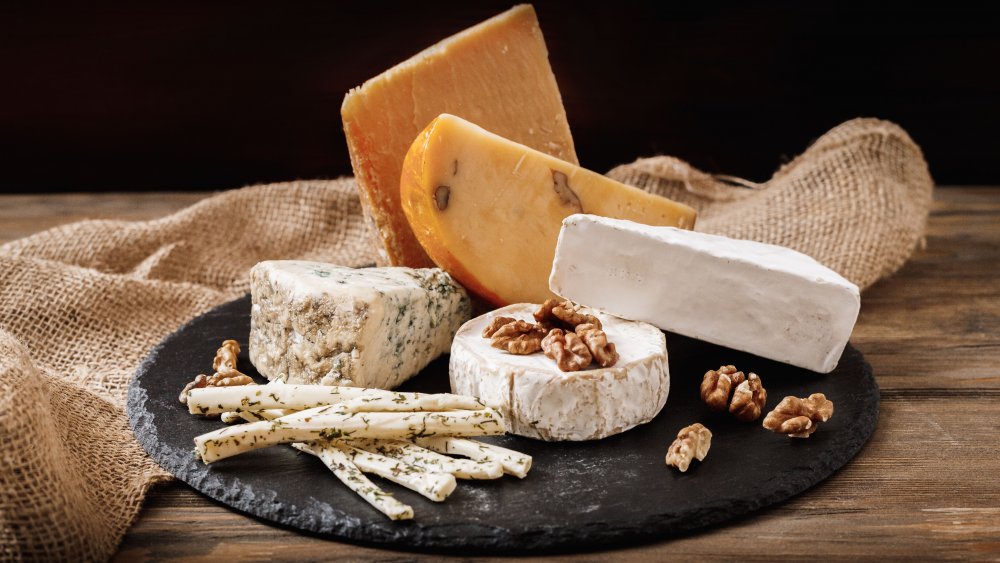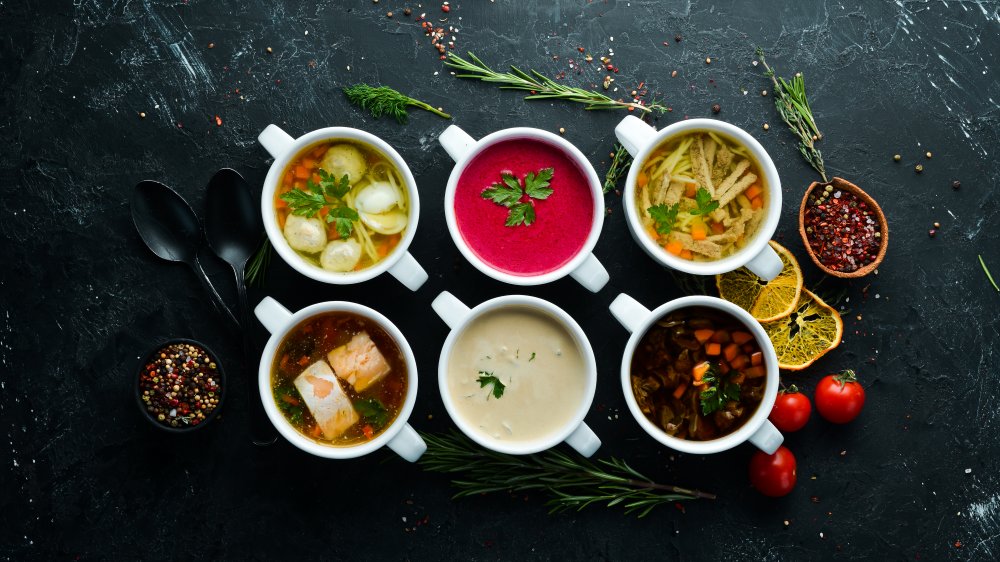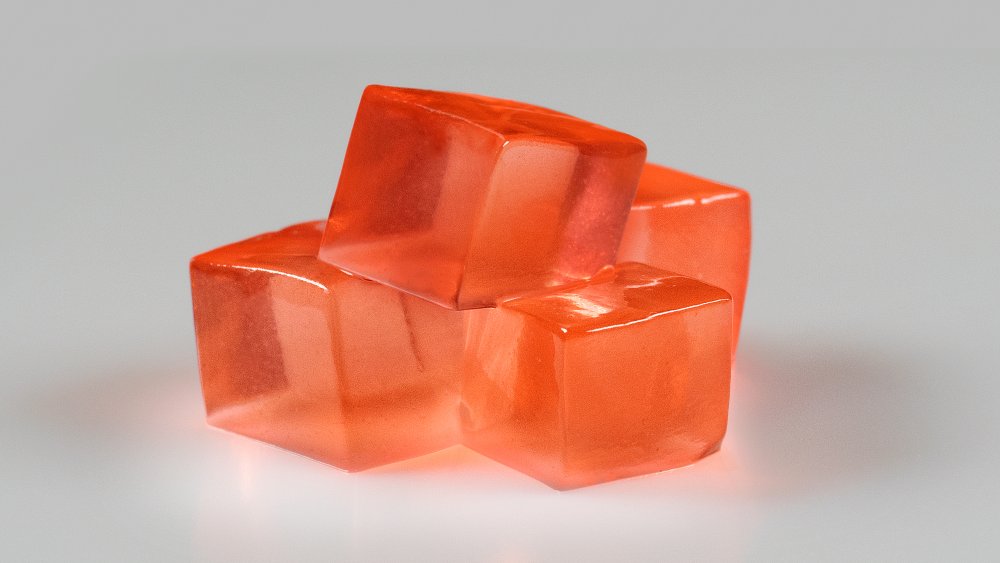Foods You're Storing In Your Freezer But Shouldn't Be
When freezers became standard in the American household, they completely changed the way we ate. They made it possible for home cooks to preserve the harvest of fresh fruits and vegetables, and industrial freezers can freeze anything from produce to meat, bread, and prepared meals. Without the freezer, some of our favorite foods wouldn't exist, and we would never be able to debate which of Trader Joe's frozen foods is best. (It's the Mandarin Orange Chicken. It's always been the Mandarin Orange Chicken.)
While it's true that you can freeze just about anything, that doesn't mean you should do it at home. For starters, anything that didn't taste good before it went into the freezer won't taste any better when it's thawed. If anything, it'll be worse — freezing can change the color, flavor, and texture of food, so it won't always have the same flavor as the original. That works out okay for most foods, but there are a few that turn out mushy or mealy. Worse yet, some separate and curdle! If any of these foods are in your freezer, it might be time to toss them out.
Don't freeze anything containing cornstarch
You'll find cornstarch in a great number of recipes, from Asian-style sauces to gravy and soup. It's a preferred way to thicken soups and sauces for people on a gluten-free diet, and you can use it as a substitute for recipes that use hard-to-find ingredients like tapioca flour. Unfortunately, anything thickened with cornstarch doesn't have a place in your freezer. It's not that it won't freeze; the problem occurs when you thaw it out.
Soups and sauces thickened with cornstarch turn spongy when they return to room temperature. Spongy isn't exactly the texture we want to use to describe a lusciously creamy bisque, and it isn't very desirable for something like biscuits and gravy, either. If you really need to freeze a recipe that uses cornstarch, we have a work-around: Try using arrowroot instead. You can use a one to one ratio when substituting arrowroot for cornstarch, so you don't even have to do any culinary math. It will thicken just as well, and mimic cornstarch's glossy finish, all without the spongy freezer results.
Eggs in the shell shouldn't be frozen
We rarely find the occasion to freeze eggs. They're usually good for three weeks after you bring them home, and you can make them so many different ways for breakfast. Not only that, but there are dozens of recipes you can make to use up eggs, like banana or zucchini bread, homemade pasta dough, cakes, cookies, and more. But, from time to time, we find ourselves with an excess of eggs and no way to use them.
No matter what you do, don't pop eggs directly into the freezer. When you freeze eggs in their shell, the water content of the egg whites will expand, cracking the outer shell. That exposes the liquid inside to bacteria. Not only that, but the yolks can't be frozen intact. They're too gelatinous, and they'd be impossible to use when thawed. If you really need to freeze eggs, you'll have to crack them first. Then, you can either separate the whites from the yolks (whisking and storing each mixture separately), or blend them together before heading to the freezer.
Cooked egg whites can't be frozen, either
We know what you're probably thinking — why would you freeze cooked egg whites? While we doubt anyone would want to freeze leftover scrambled egg whites from breakfast, you might not think twice about freezing hard-boiled eggs or desserts with meringue topping. That would be a mistake, though, because egg whites are terrible after a stint in the freezer.
Cooked egg whites become tough and rubbery when frozen because they're higher in water content than the yolks. It's okay to scoop out the yolks from hard-boiled eggs and toss those into the freezer, but the whites just won't do. And while the freezer might seem like a nice, dry climate for meringue, it can turn the once-crisp topping into a sugary mess. Any exposure to moisture ruins meringue, and opening and closing the freezer door can introduce enough humidity into the environment and melt the mixture.
Don't freeze milk, yogurt, or sour cream
Dairy products have one very important thing in common: They're highly perishable. They need to be stored in the refrigerator at all times, and while yogurt and sour cream have longer shelf-lives than milk, they will all spoil sooner or later. Unfortunately, while you can freeze these items, we certainly don't recommend it.
When milk freezes, the fat separates from the liquid. It can be incorporated back into the milk by blending it with an immersion blender, but the milk will never be the same. It gets a grainy texture that is really unpleasant. The grittiness is even more pronounced in processed dairy products like yogurt and sour cream. Sadly, you won't end up with frozen yogurt. Instead, the curds separate from the whey, and it basically curdles in the freezer. Not only that, but milk products pick up other flavors really easily, so your frozen milk might taste fishy if it's stored next to seafood or meat products. Thanks, but no thanks.
Keep your coffee out of the freezer
We love coffee as much as anyone, and we'll do almost anything to keep from running out of our morning fix. Except keep coffee in the freezer, that is. It's tempting to stock up on your favorite beans when they're on sale at the store, but it's really best to buy the coffee as fresh as possible. Here's the thing: coffee goes bad when exposed to moisture, air, light, or heat. That makes the freezer sound like a good place to store excess coffee — it's cold and dark, after all — but it's not the right environment to preserve the coffee's rich, nuanced flavor.
Despite its super cold storage temperatures, the freezer isn't as dry as you'd think. Every time the door opens, moisture from the kitchen condenses on the items in the freezer, as well as the door and shelf. This raises the humidity inside the freezer, exposing your coffee to moisture. Plus, opening the door exposes the product to light (another enemy of coffee), so do yourself a favor and store coffee in the pantry in a dark, airtight container.
Don't re-freeze defrosted meat
Have you ever defrosted more meat than you were able to eat? Maybe you expected a bunch of people to show up for a party and thawed too many burgers, or pulled out too many frozen chicken breasts for family dinner? Well, you'll need to find something to do with all that extra meat, because you really shouldn't put it back in the freezer uncooked.
Technically, it's safe to re-freeze thawed meat. The United States Department of Agriculture (USDA) confirms you can put thawed meats back in the freezer, so long as they were thawed in a refrigerator. Any meats thawed at room temperature are a no-go because of potential bacterial growth. But, even if the meat is safe to freeze, re-frozen items will experience a noticeable loss of quality. Cooks Illustrated explains this is because water freezes inside the meat, causing the proteins to change shape and shorten. Repeating this process twice gives meat a tougher, dryer texture than meat that was only frozen once.
Fried food should never be frozen
Fried food is delicious, and it's hard to say no to a to-go box filled with french fries, onion rings, or fried chicken. Sadly, we advise you to pass on leftovers: They just won't live up to your expectations once you get home. It turns out this type of food is so delicious because the fryer oil can be heated to almost twice the temperature of boiling water. These high temperatures dehydrate the food as soon as it hits the surface, forming a crispy crust while protecting the insides from drying out. Plus, the sound of the crispy, crackly exterior of fried food actually makes it more appetizing.
Unfortunately, that crust won't hold up in the refrigerator, and it doesn't fare any better in the freezer. The oil that remains on the surface won't freeze, and it can impart odd flavors into the frozen food. Plus, that once-crunchy exterior will become soggy, so there's really nothing to love about frozen fried food.
Potatoes shouldn't be frozen
We've all seen the rows upon rows of bagged potatoes in the freezer aisle at the grocery store, so you might think you can save a few bucks and bag them yourself. Just don't do it. Potatoes are one of those vegetables that don't freeze well. According to Penn State University, when potatoes are frozen, the water in the potato separates from the starch. Since potatoes are about 80 percent water (depending on the variety), any dish containing thawed potatoes will turn out watery with a mealy texture.
So how do tater tot and french fry companies pull it off? It is possible to freeze potatoes, but they have to be cooked first. Otherwise, they'll turn a very unappetizing black color when exposed to cold temperatures. Then, they use industrial flash-freezing plants that use ultra-low temperatures and rapid movement of air to freeze individual pieces of food as quickly as possible. So, unless you've figured out a way to pull that off at home, we recommend leaving the frozen potatoes to the professionals.
Don't freeze most raw vegetables
While some vegetables can be frozen raw, most contain too much water. The National Center for Home Food Preservation warns that vegetables used for raw salads — like cabbage, cucumbers, radishes, lettuce, or celery — will turn out limp and water-logged when thawed. Not only that, but they can develop off-flavors or turn an unappetizing brown color from oxidation. Sorry, but there's no good way to freeze raw vegetables and have them turn out salad-worthy.
Luckily, you can freeze some vegetables, but not in their raw state. The University of Georgia Cooperative Extension Service recommends blanching vegetables before packing them for the freezer. This involves briefly cooking the veggies in boiling water or in a steamer basket to halt the enzyme activity that causes limp texture and color loss. It also keeps the vegetable from losing vitamins and minerals while in the freezer. The process is a bit tricky, though; undercooking the vegetables can activate enzymes that promote spoilage, and overcooking them will cause them to lose nutrients and turn mushy.
Watery fruits shouldn't be frozen
You might love using frozen berries from the store for your morning smoothie, and you may be tempted to make your own (especially when fruit goes on sale at the store). While it's absolutely possible to freeze fruit, the thawed product will definitely be soggier and more watery than the original. That's okay if you're using them in baked goods, but don't plan on using them like fresh fruits. It's also important to note that some fruits freeze better than others, depending on their water content and whether they contain antioxidants, like most berries.
Melons do the worst in the freezer. Watermelon and cantaloupe contain over 90 percent water, and that water freezes into ice crystals. When it thaws, the water leaves the fruit, leaving you with a mushy mess. Fruits like apples that oxidize when exposed to air have to go through an extra treatment before hitting the freezer. The University of Michigan Extension recommends treating these fruits with vitamin C (ascorbic acid), soaking them in a brine, or blanching them to prevent oxidation.
Never freeze mayonnaise
Mayonnaise is a delicious combination of eggs, oil, and vinegar known as an emulsion — a mixture of two liquids that don't normally combine. Like oil and vinegar: Vinegar is hydrophilic (water-loving), and oil is hydrophobic (water-fearing). Luckily, an egg yolk works a little bit like a magnet, binding the water and fat molecules to bring the vinegar and oil together. But, it only works at room temperature.
As soon as mayonnaise freezes, the emulsion breaks, and the individual components begin to separate. You'll see some liquid floating on top of the mayonnaise when it's thawed, and it may taste more oily than the original. It's still safe to eat, and you can try re-emulsifying it by whipping it in a high-speed mixer. But the resulting mayonnaise will be much thinner, and it may have an odd texture. The same thing applies to any mayonnaise- or egg-based salad dressings, so you might want to keep those out of the freezer, too.
Keep ketchup out of the freezer
It's hard for a bottle of ketchup to go bad. Between the acidity of the tomatoes and vinegar and the added sugar, ketchup is a well-preserved product with a pretty long shelf life. Unopened ketchup is good for two years past the stamped-on expiration date, and it'll last up to a year in the refrigerator after it's opened. If you do happen to find yourself with a bottle nearing its expiration date, you might want to find an excuse to make meatloaf, because it won't freeze well.
Ketchup mostly freezes like ice, thanks to its high water content, but the individual ingredients tend to separate as the product thaws. If the ketchup is made with regular sugar, the thawed ketchup turns out thinner than the original, but brands that contain high fructose corn syrup are problematic. Corn syrup freezes at lower temperatures than the rest of the ingredients, creating a jelly-like consistency. Neither sounds like a good option for dipping french fries.
Don't freeze cheese
Like most of the items on this list, you can technically freeze cheese. Unfortunately, it won't be the experience you were hoping for. According to the National Dairy Council, some cheese freezes better than others, depending on their moisture content. Hard cheese (like aged cheddar) will become crumbly when thawed, so it wouldn't be ideal for putting onto a salad. Softer cheese (like young cheddar) seems to do okay, especially if it's shredded prior to freezing because the moisture can re-incorporate with the shreds upon thawing.
Unfortunately, really soft cheese (like cream cheese or ricotta cheese) doesn't fare very well at all. These cheeses have a very high water content, and like yogurt, the curds will separate from the whey. Frozen cream cheese loses all its creamy texture and turns into a grainy, hard-to-spread mess. It might be fine for making casseroles or baked goods, but you certainly wouldn't want to spread it on a bagel.
Certain types of soup shouldn't be frozen
Incorporating the freezer into your weekly routine is a great way to meal prep yourself to a healthier diet. It's super convenient to make a large batch of soup, portion it into individual servings, and store it in the freezer for a later date. When you're planning your meals for the week, simply pull out the soup and let it thaw overnight in the refrigerator. Lunch is served! Unfortunately, not all soups freeze as well as you'd think.
Any soup made with grains — pasta, quinoa, or rice — won't turn out like you expected. The grains will soak up the liquid as the soup thaws and become super soft and mushy, ruining the texture of your once-perfect soup. The same thing happens with vegetable-heavy soups, and the vegetables can turn grainy and stringy. That's especially true of soups containing chunks of potatoes. The potatoes lose their water content when they thaw, so you'll end up with a soup filled with odd gummy bites.
Gelatin doesn't freeze well
Gelatin is a pretty amazing compound. Its collagen molecules give products like Jell-O and marshmallows their bouncy texture, and it gives body to bone broth and chicken stock. But you'll want to skip putting extra panna cotta or gummy bears into the freezer, because freezing anything made with gelatin isn't a good idea. When gelatin freezes, something really bizarre happens. Ice crystals form inside the gelatin-infused product, breaking the gel structure and damaging the polymers and colloids that bind the product together.
A YouTuber who accidentally froze a batch of Jell-O describes the texture as being extra gelatinous, saying it almost feels like "snot." It might still taste okay, but that consistency is enough to ruin anyone's appetite. It's not even a good idea to freeze gelatin combined with alcohol, something that doesn't freeze at regular freezer temperatures. The gelatin will still break, and the Jell-O shots would obtain that same snotty texture.
